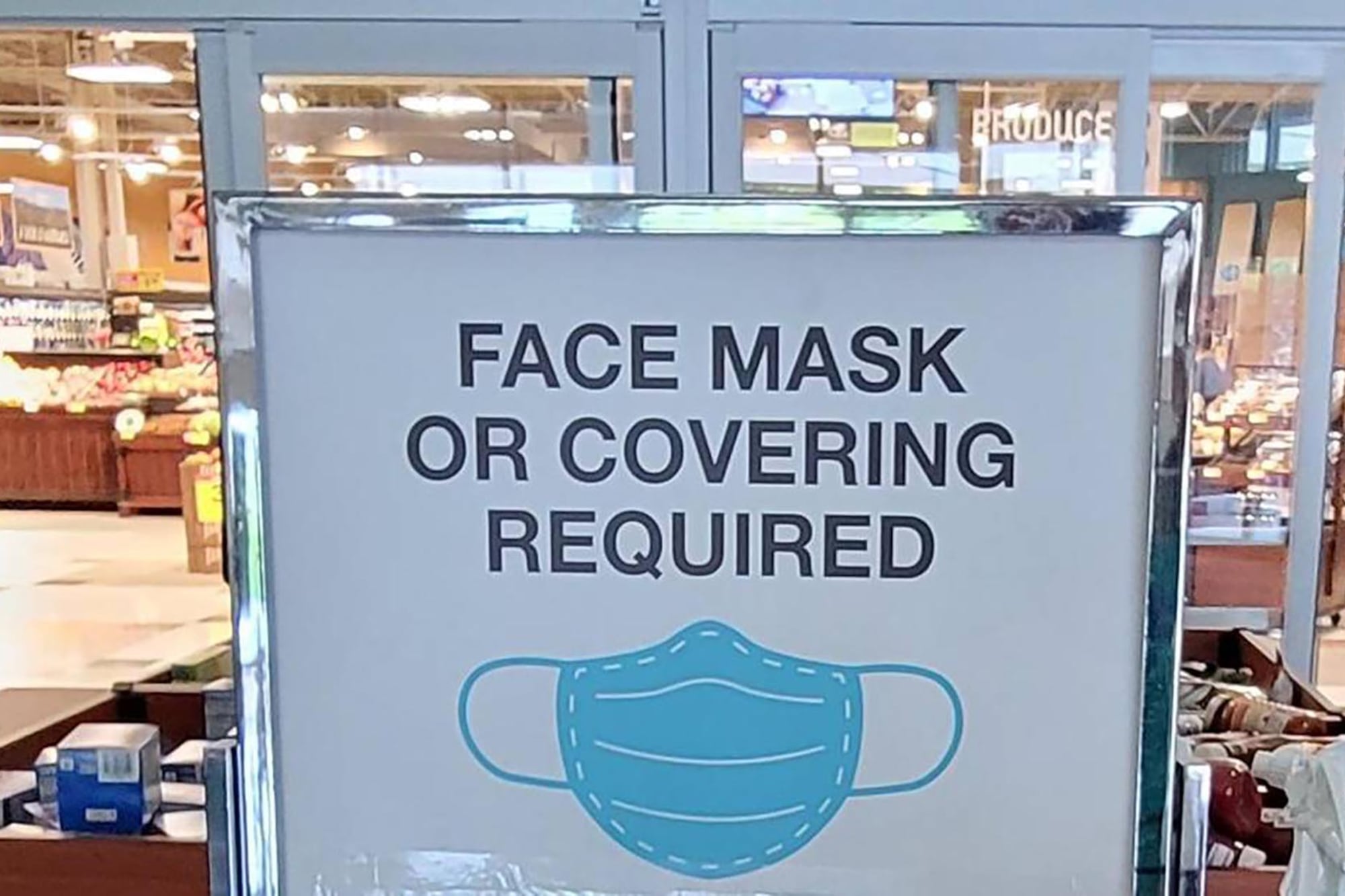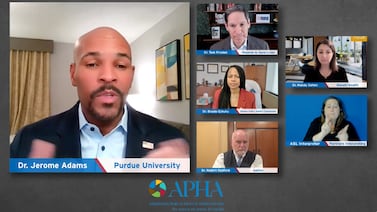Dr. Jay K. Varma is a special contributor to Healthbeat. Public health, explained: Sign up to receive Healthbeat’s free national newsletter here.
While most national attention has focused on the dismantling of public health infrastructure at the federal level, a new law in Idaho may be one of the most consequential.
On the surface, the Idaho Medical Freedom Act affirms an individual’s right to bodily autonomy. In practice, its broad language threatens the state’s ability to prevent illness and death from infectious diseases, and, if replicated elsewhere, it could unravel decades of progress in public health.
U.S. Constitution delegates public health to state ‘police powers’
Under the Constitution’s Tenth Amendment, states are primarily responsible for public health through their “police powers.” The federal government is only permitted to intervene in public health when an issue involves interstate commerce or international borders.
The power of states to protect health is vast, including the ability to restrict an individual’s freedom and mandate they receive a medical intervention. In 1905, the Supreme Court’s Jacobson v. Massachusetts decision confirmed that states may compel people to get vaccinated to protect the community from a dangerous infectious disease (in this case, smallpox). The court ruled that individual liberty does not include the right to expose others to harm. Or, as is often said in public health discussion, the right to swing your fist ends where the other person’s nose begins.
The Jacobsen decision supports many accepted public health practices that limit one person’s individual freedom in order to protect another person’s safety: requiring vaccination for school attendance, isolating ill people with tuberculosis, quarantining exposed persons during measles or Ebola outbreaks, and mandating masks or other protective equipment for health care workers.
What the Idaho Medical Freedom Act does
The Idaho Medical Freedom Act prohibits any government or private entity from requiring a “medical intervention,” defined broadly as any procedure, drug, device, or action used to diagnose, prevent, or treat disease. While drafted in response to Covid-era rules, its reach extends far beyond Covid vaccines.
The statute bars health departments, employers, and schools from requiring medical interventions unless explicitly mandated by federal law. This includes treatments, testing, vaccination, and any preventive practices that alter “biological function.” In doing so, the law removes public health authority at the state and local level to enforce measures that have long been essential for disease control and occupational safety.
A narrow exemption in the law does permit employers to require personal protective equipment if consistent with “traditional and accepted industry standards.” Yet the law excludes vaccines, masks, or any “medical interventions introduced during the Covid-19 pandemic.” This language leaves unclear whether respiratory protection like N95 respirators counts as traditional PPE or as prohibited “Covid-era” requirements.
The statute also forbids excluding any “healthy” person during a disease outbreak because of vaccination status. This provision directly contradicts standard outbreak management practices, which rely on temporarily excluding people who have been exposed to a disease if they are not immune to that disease.
Public health and legal risks of the Idaho Medical Freedom Act
Tuberculosis control. Isolation and treatment orders for active tuberculosis could be contested as compelled medical interventions. Preventive therapy for exposed contacts might be viewed as coercive. Hospitals could hesitate to require N95 masks for infectious patients and health care providers, as well as restrict patients to negative-pressure isolation rooms, potentially causing TB outbreaks in health care facilities.
Health care infection control. Facilities may face lawsuits for requiring flu vaccines, N95 masks, or testing among staff. The “traditional PPE” clause is vague, leaving health care administrators uncertain whether basic protective standards remain enforceable. Federal Occupational Health and Safety Administration rules might override the law, but only after litigation.
Outbreak management. Health departments could lose authority to exclude unvaccinated or exposed individuals during outbreaks of vaccine-preventable infections, such as measles and meningococcal disease. As a result, people who are incubating an infectious disease will be permitted to develop and potentially spread that disease.
Occupational safety. Laboratories and emergency services may be unable to require hepatitis B vaccination, gloves, or N95 masks unless explicitly mandated by federal law. This creates conflicts with federal occupational health standards and uncertainty for employers seeking to protect workers.
Conflicts between federal and state authority to protect health
The Idaho law could result in legal challenges on multiple fronts. Prohibiting isolation or exclusion of contagious individuals could violate others’ rights to health and safety under substantive due process. The Tenth Amendment allows states to regulate health but not to obstruct federal laws for infectious disease control. Federal supremacy gives OSHA, the Centers for Medicaid and Medicare Services, and the Centers for Disease Control and Prevention authority to enforce workplace and health care safety rules that pre-empt conflicting state statutes. At the same time, it’s unclear if the current federal administration would pursue these cases, given its negative views of public health interventions.
Until courts resolve these conflicts, Idaho’s hospitals, clinics, schools, and employers will operate in legal uncertainty. Some will comply with federal rules and risk violating state law, while others will comply with state law and risk outbreaks.
Idaho is choosing to disarm its police powers for health
By stripping itself of the authority to require basic infection control, Idaho has weakened both its own government and its private institutions. The Medical Freedom Act’s sweeping ban on medical interventions, ambiguous exemptions for PPE, and prohibition on excluding unvaccinated individuals during outbreaks dismantle standard infectious disease control practices.
Public health law balances liberty with the collective right to safety, i.e., the freedom to do something versus the freedom from something. What Idaho calls freedom leaves its citizens less free from infection and less protected from harm. The state has used its police power not to defend public health but to take that power away.
Dr. Jay K. Varma is a physician and epidemiologist. An expert in the prevention and control of infectious diseases, he has led epidemic responses, developed global and national policies, and implemented large-scale programs that saved hundreds of thousands of lives in Asia, Africa, and the United States.







